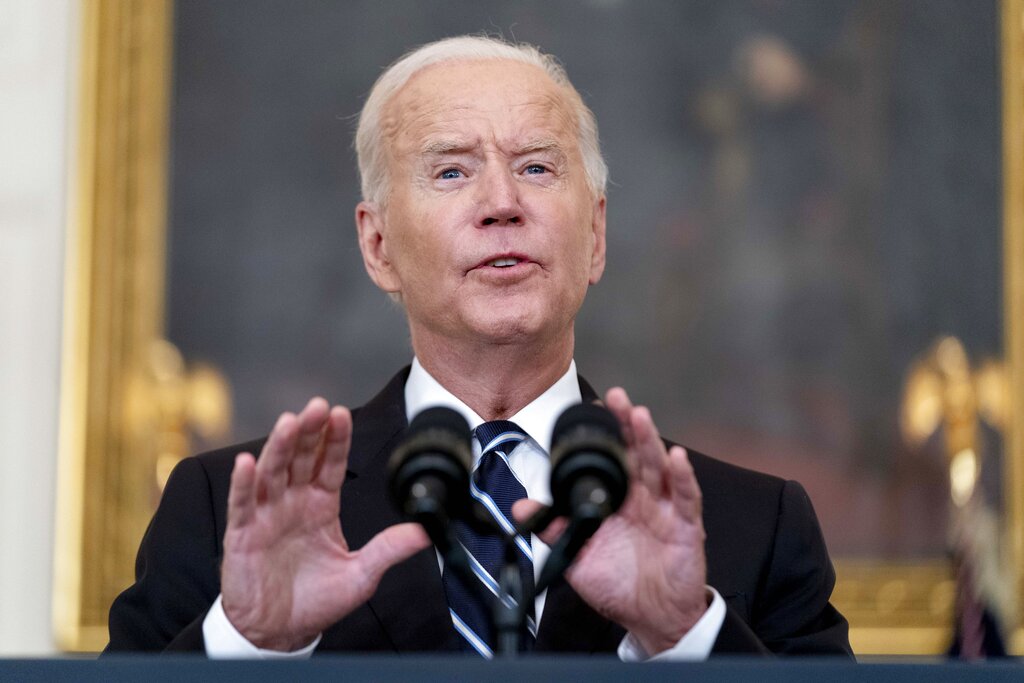David Bahnsen, founder and chief investment officer of The Bahnsen Group, was slow to embrace the idea of cultural discrimination with JPMorgan Chase, where he's been a shareholder for 15 years. But when more and more proof was presented, he better understood the landscape – and then he put in place a plan to stop JPMorgan Chase from arbitrarily closing accounts associated with individuals or companies who identified as Christian or conservative.
Bahnsen isn't optimistic that his proposal (Agenda Item #10) will pass. In these large-scale shareholder meetings, voting is often done by proxy. The results from two large proxy vote services usually side with the company's board of directors, and the board has already asked its shareholders to vote against Bahnsen's proposal that JPMorgan Chase conduct an internal review to determine if, in fact, it is engaging in discriminatory practice.
CEOs, others need to hear all perspectivesChris Woodward (AFN) Like The Bahnsen Group, the Free Enterprise Project at the National Center for Public Policy Research owns shares in companies so it has opportunities to confront company leaders at shareholder meetings. Later this week, shareholder activists will present proposals to CVS Health Corporation, Home Depot, Yum! Brands, and Charles Schwab Corporation, addressing everything from civil liberties to racial equity audits and "debanking" of conservatives. Ethan Peck of the Free Enterprise Project contends people on both sides of the political aisle are "fed up" with the administrative state. 
"And corporations have become the same sort of thing – a sort of top-down managerial class managing everything, keeping the people with a rightful say out," he tells AFN. "I hope that our influence will increase the attendance of others … not even just from our perspective, but from all perspectives." Peck says not only are company executives sometimes surprised to hear from concerned shareholders, but some shareholders are not even aware of the liberal things that companies are doing. FEP supports Bahnsen's proposal (Agenda Item #10). "JPMorgan Chase has been particularly egregious in debanking conservative organizations and individuals, such as the National Committee for Religious Freedom, and must be held to account by shareholders," says Peck's group. |
Board members didn't even want the proposal on the ballot. It's only there because the Securities and Exchange Commission intervened and told the board to let the proposal proceed.
"Their opposition to me putting that on the docket is really what created this hubbub and forced the SEC to get involved and say, 'No JPMorgan, you will hear out this resolution,'" Bahnsen told show host Jody Hice on Washington Watch with Tony Perkins Friday.
The Wall Street Journal obtained a letter sent to JPMorgan Chase CEO Jamie Dimon and signed by Republican attorneys general representing 19 states. They accused the bank of cancelling the checking accounts of major organizations and asking screening questions that dealt with religion and politics. The answers would determine if the organizations would be reinstated at JPMorgan Chase.
The core of the complaint involves The National Committee for Religious Freedom, a non-partisan faith-based organization that defends the right of all Americans to live their faith freely. The group's advisory board includes members who are Christian, Hindu, Jewish, Mormon and Muslim.
The NCRF's account with JPMorgan Chase was closed within six weeks of its opening with no explanation given. All NCRF chairman Sam Brownback was told at the time was: "The decision was made at the corporate level; it's secret, and it's irrevocable."
All that's asked of the bank is an internal review
Bahnsen, a Christian, believes he has presented a fair and reasonable plan to the board.

"That's a thing that's very important about my resolution. I did not go them and say, 'We want you to admit you're doing it.' And I did not say, 'We want you to start discriminating against other religions or discriminating against the Left,'" he explained.
"All I said is, 'We'd like you to run an investigation internally and report back to us, the shareholders, the owners of the business, as to whether or not you found this is happening. If it isn't, then great, everyone's going to be really happy to know it's not; and if you find out that it is, we can start to remedy it.'"
ESG, a framework that helps shareholders understand how any organization manages its business relative to environmental, social and governance criteria, is an important part of the plan at JPMorgan Chase. Yet the state AGs, in their letter, said the bank refused to participate in a survey for the Viewpoint Diversity Score Business Index.
Viewpoint Diversity Score is a project of the faith-based Alliance Defending Freedom, which advocates for, among other things, religious liberty. JPMorgan Chase received a VDS score of 15% for 2022. The company spent $100 billion to support climate action and $18 billion for its Racial Equity Commitment in 2021.
Bahnsen says he knows JPMorgan Chase CEO Jamie Dimon to be a "pretty pragmatic guy," and with that scouting report he gave Dimon the benefit of the doubt. He leaves open the possibility that the bank's anti-Christian and anti-conservative practices are being pushed at levels below Dimon.
"He's been a very effective CEO. He's pushed back on AOC [U.S. Democratic Rep. Alexandria Ocasio-Cortez] and some of the far Left on some of these ESG things," Bahnsen shared, "so I gave them the benefit of the doubt, saying, 'They wouldn't do something that would cut them off from profits.' I looked at it deeper, and I became convinced that something was happening – and so if senior management doesn't know about it, and they're not directing it, that's even worse."
Most other items of business Tuesday will be presented from a pro-Left point of view, Bahnsen said. The agenda currently includes an initiative from the Sierra Club that tells JPMorgan Chase it isn't doing enough for ESG.
Approved or not, message has been delivered
"The Left has learned how to play this game. I'm not looking to do the opposite of the Left. They want an ESG and Diversity-Equity-Inclusion agenda and BLM, all these kinds of things, to shove them down the throat of corporate management," Bahnsen said.
"I'm not asking them to take on my agenda. I'm asking them to get religion and politics out of banking and to just act like a good business in the best interest of their shareholders."
Still, Bahnsen doesn't expect his request for an internal review will get the necessary votes – but he's hopeful the attention it has generated may get the job done anyway.
 "I don't think we'll end up having the votes to sort of 'David their Goliath' in this case, but I actually think we've already won in the sense that this got an incredible amount of attention … and now their guard is up," he said. "There is no way they can de-bank a Christian or political conservative in the months ahead. There is such a magnifying glass on this."
"I don't think we'll end up having the votes to sort of 'David their Goliath' in this case, but I actually think we've already won in the sense that this got an incredible amount of attention … and now their guard is up," he said. "There is no way they can de-bank a Christian or political conservative in the months ahead. There is such a magnifying glass on this."
In Bahnsen's view, it's important for all corporations to see Agenda Item #10 at Tuesday's meeting of JPMorgan Chase playing out in public.
"One way or the other, I believe they are now aware of something that I genuinely believe they were not aware of before – and that is that there are people like us out there, that there are Christians, there are conservatives who are willing to engage," Bahnsen said.
"They're so used to getting harassed by radical environmentalists that they didn't know there are conservatives who want to engage in this marketplace."
Sidebar added after story originally posted.







